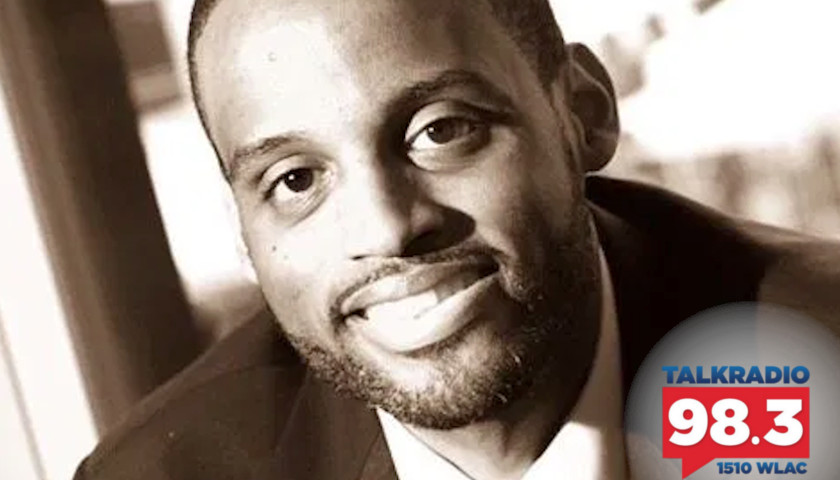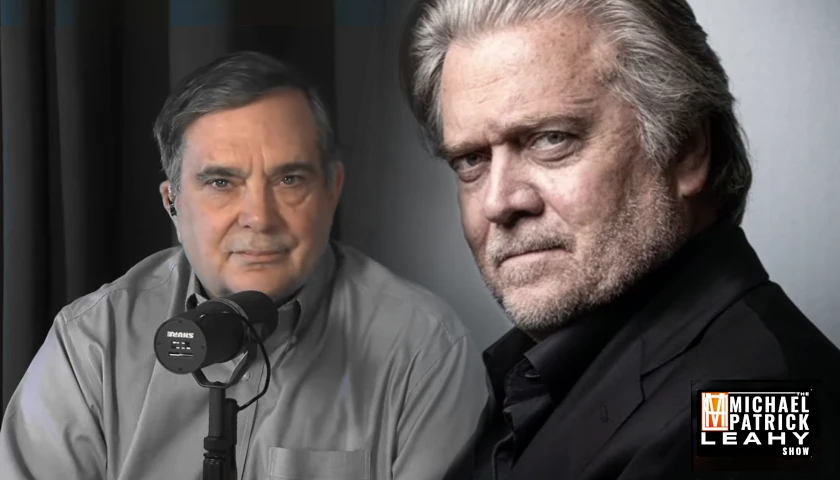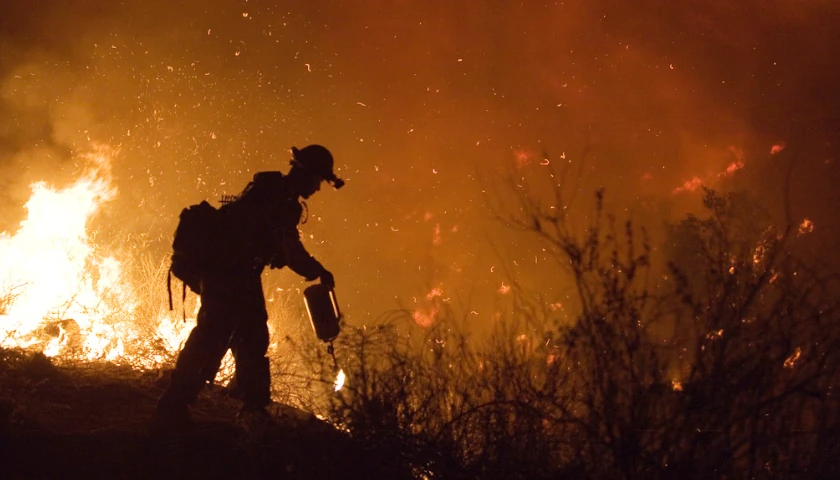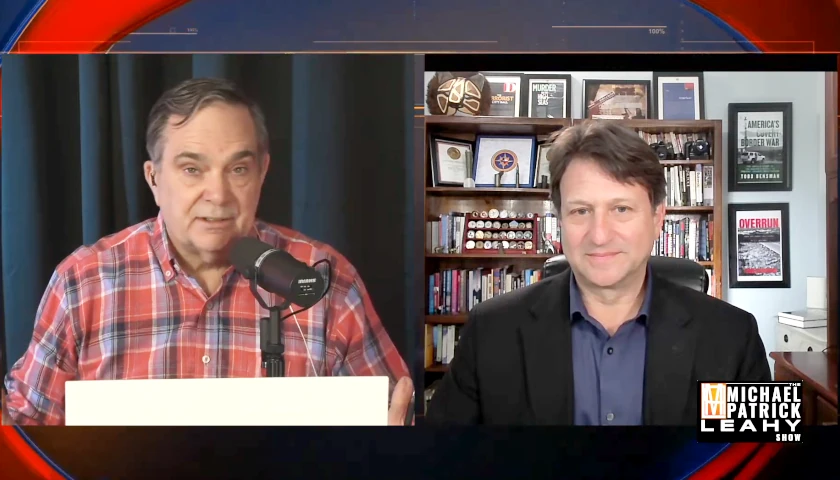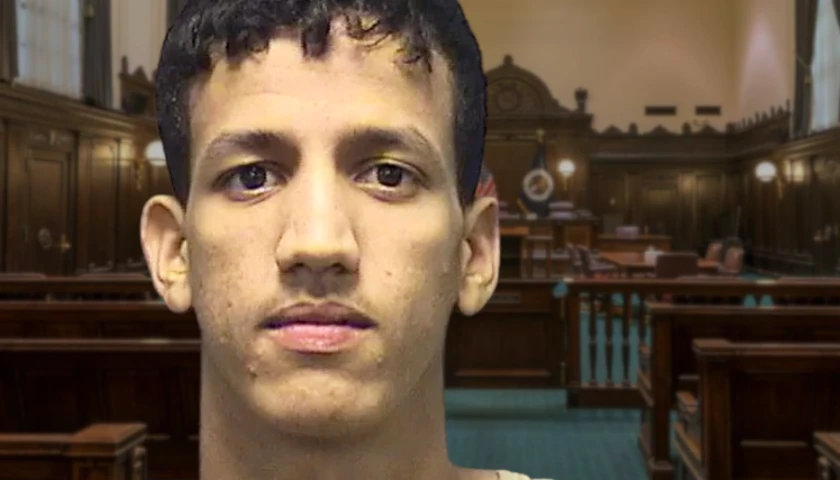Live from Music Row Thursday morning on The Tennessee Star Report with Michael Patrick Leahy – broadcast on Nashville’s Talk Radio 98.3 and 1510 WLAC weekdays from 5:00 a.m. to 8:00 a.m. – host Leahy welcomed Charles Love Executive Director of Seeking Educational Excellence reflects upon growing up in America in his Black community of Gary, Indiana.
Leahy: We are joined on our newsmaker line now by Charles Love a scholar with 1776 Unites. He’s the assistant executive director of Seeking Educational Excellence. He’s a talk show host at AM 560 in Chicago.
And also a great essay written by Charles that we want to talk about. We must scrap the 1619 Project for an accurate account of American history. Welcome to The Tennessee Star Report Charles.
Love: Michael, it’s great to be here. Thank you for having me.
Leahy: So tell us about your essay. Why must we scrap the 1619 Project?
Love: Well, I wrote my essay because I was hearing all the noise at the time, which obviously has shifted since then. It’s gotten louder. But what I saw was missing in a lot of these arguments is logic and context.
Everything that people argue has a sprinkle of truth in it, just enough to get you again so you can’t just say everything in it is not true. But the problem with the project is even some historians, as you know, took it to task.
But it’s beyond that. There were factual errors. But where there weren’t factual errors, there were lies of omission and they just took facts and took conclusions that made no sense. So I wanted to highlight that in my essay, but also use it as an example.
People understand things better when you tell stories. So I was telling a basic, simple story. I was telling my story about my upbringing and the people around me in my community in a majority Black town. I grew up in Gary, Indiana.
Leahy: Gary, Indiana. Not Louisiana, Paris, France, or Spain. From the music man.
Love: Yes. So the music man. So knowing that I felt that I had a pretty unique and interesting way to describe the way they should present the information if they wanted to present it, as opposed to the way they were doing it.
Leahy: Did you grow up there in Gary, Indiana, about the same time the Jackson family, the Jackson Five, was growing up there or were they a little bit before you?
Love: They were a little bit before my time. Especially since they left so young. They were gone by the time I was born. But I was born right when the city was breaking from being segregated.
As I say in the essay, they had elected the first Black Mayor at the same time as Cleveland and LA did. And they had what we all later called the White flight. So it was segregated at the time I was born.
And when I was really little, people were slowly starting to move into other neighborhoods. I was growing up right through that transition and seeing the change in the shift living in America, my childhood and my day-to-day life was not what we hear on the radio and see on the news. And that’s what bothers me.
Leahy: What did your folks do in Gary, Indiana, when you were growing up?
Love: My parents?
Leahy: Yes. What did they do?
Love: My mom was a housewife and my dad worked at the mill. We were kind of a steel town.
Leahy: A steel town. That’s a job working in a steel mill, isn’t it?
Love: That’s what he did until he retired. And so that’s what we did. And my family did.
Leahy: I’m guessing, Charles, you never mess with your dad, because if you work in a steel mill, you’re strong and you don’t put up with anything.
Love: Well, as I said, my mom was a housewife. So there were those classic parents, mother-father roles that you can’t speak of today. You know the P-word. (Leahy chuckles) But that’s what my household was like and many in my neighborhood at the time.
And I got to see the shift because I was old enough to not notice the difference, but see the difference because I was like 8, 9, and 10 and 12. Here’s one interesting thing. We often hear about the out-of-wedlock birth rate in the Black community.
But I’m old enough that things were different. I was coming up during the shift. One thing I didn’t notice and write about until I was an adult, but I started to notice it. All of my friends, I grew up in a community with a lot of people my age.
We all played, ran around, and all of them either had their father at home or knew their father really well. They were active. By the time I hit high school, they were all living in single-family homes.
So it’s not that they were born out of wedlock, but the family dynamic shifted over the course of their childhood.
Leahy: Why did that happen so quickly?
Love: I don’t know. I think that for them it was just more circumstances. It wasn’t the same thing as it is now. I don’t think it was the cultural shift as it is now. I don’t think it was media and all that kind of stuff.
But I got to see how it affects kids, though, because I noticed how my friends were different when we were 8, 9, 10, and 11. Same kids, same neighborhood. I walked into high school, and they were just different because that loss of a father makes a difference.
And so now when I hear people talk about it now, I’m like, I know for sure it’s different because you’re talking about going your whole life and your childhood, without knowing your father.
I can tell you about people who grew up with their father in the house until they were nine to 11. And by the time they were 16, they were defiant and they were getting into trouble. Not that no one else gets into trouble but there was not that stern figure to put them back on track.
Leahy: Did you go to a public high school in Gary, Indiana?
Love: Yes, I did.
Leahy: What was that like?
Love: All the way through. It was actually, as I write an essay, tremendously wonderful. I think my essay spins the narrative that you hear about the Black people. So my concern is that there are problems for sure that need to be fixed.
But too many people both Black people because they’re trying to prove a point, and White people because they don’t know any better, keep telling a tale of Blacks being underclass across the board. they’re all poor, they’re all uneducated and they’re all criminals.
So do we have problems in each of those lanes that need to be addressed? Of course. Is the percentage higher than Whites? Yes. But they act like it’s all violent crime in the Black community.
Everybody talked about how it’s higher than Whites, but the percentage of violent criminals is like two and a half percent. So most of us aren’t committing violent crimes. Yes, we have a poverty rate that’s higher than Whites, but it’s like 18 percent.
Too high? Yes. But that still means 80 percent of us aren’t in poverty. So my childhood was great. I went to an elementary school at the time. The city is smaller now, but at the time we had six high schools and lots of elementary schools.
I don’t know 50 or so. When I graduated high school, every valedictorian went to my elementary school.
Leahy: No kidding?
Love: From the public school down the street. I tell this often. I went through K through 12 and never had a White kid in my class, my same year. I only remember two in the school the whole time, and neither was in my year and both left before they graduated.
So you can’t call it a race thing. The city was not that socioeconomically diverse. There were really poor, poor working class and a few middle-class people. So you can’t really call it that either. But they focused on excellence.
What I try to focus on what we talk about at Seeking Educational Excellence, we focus on STEM and you focus on what you can change and don’t worry about the others. And so my experience was great.
I often say that I don’t think a middle-class White person, White picket fence in the suburbs had a different life, at least when I was growing up, as I did. So maybe their vacations were a little nicer. (Chuckles)
Maybe they had some nicer toys, but I didn’t want for anything. And I think I have the traditional American experience, as anyone else would.
Leahy: Grant Henry is in studio with us. He has a question for you. Go ahead, Grant.
Henry: Charles, the last paragraph of your article says, I suggest we take a different approach than the critical race theory approach of the 1619 Project. Instead, let’s take one that my teachers took when I was a child.
We learned an accurate account of American history. Charles, what do you say to someone and help us understand how to respond to this point when someone says, well, that’s what critical race theory does. It presents an accurate account of American history. What’s the response there?
Love: Wow. You’re going to make me do that in under a minute?
Henry: I’m sorry.
Love: The answer is twofold. The answer is, this not what it does, because what they do is they shift. If we want to say that history is not being too barely, and it’s making Whites with the savior, what they’re doing is only pointing out the Black.
I mean, the negatives of Blacks, which is not true. So they’re still leaving stuff out if that’s the case. But the real argument is all this talk about CRT is a waste because what’s being pushed in the schools that are upsetting students and parents, it’s not CRT.
Call it what you want. When you teach two boys kissing and you make that mandatory reading. When you say transgenderism is going to be taught in junior high school. When you’re saying that White privilege is going to be telling things of that nature, you’re not teaching accurate history.
You’re giving your opinion, whether it’s right or wrong, and you’re forcing it down parents’ and students’ throats without any say.
Listen to the full third hour here:
– – –
Tune in weekdays from 5:00 – 8:00 a.m. to the Tennessee Star Report with Michael Patrick Leahy on Talk Radio 98.3 FM WLAC 1510. Listen online at iHeart Radio.
Photo “Charles Love” by Seeking Educational Excellence.
